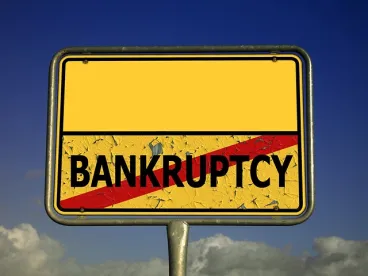After receiving a bankruptcy discharge, a borrower whose home is pending foreclosure has two options: stay in the home and, perhaps, make voluntary payments on the mortgage, or leave the home and start fresh. When a debt collector thereafter attempts to collect mortgage payments from that borrower, there may be grounds for a claim under the Fair Debt Collection Practices Act (FDCPA) or one its state law variants, such as the Florida Consumer Collection Practices Act (FCCPA). The Eleventh Circuit recently held, in reversing the denial of class certification, that the question whether bankruptcy preemption could potentially doom such a FDCPA or FCCPA claim is common to all bankruptcy dischargees, regardless of whether they choose to stay in their home pending foreclosure or leave.
In Sellers v. Rushmore Loan Management Services LLC, the consumer-plaintiffs brought a putative class action against the debt-collector-defendant for alleged violations of the FDCPA and FCCPA. The plaintiffs claimed the defendant violated the FDCPA and FCCPA by sending mortgage statements that attempted to collect mortgage debts that had been discharged in bankruptcy. As a defense to liability, the defendant alleged the Bankruptcy Code preempts the FDCPA and FCCPA and provides the sole relief to consumers who allege a violation of a bankruptcy discharge injunction.
The plaintiffs sought to certify a Rule 23(b)(3) class and were therefore required to establish that common questions among the class members predominated over individual questions. The district court ruled that the plaintiffs failed to meet this burden because the defendant’s bankruptcy preemption defense would require individualized inquiries. The court reasoned that the Bankruptcy Code sets forth different standards regarding the permissible actions after a discharge injunction has been issued depending on whether the borrower vacated the home or remained in the home. It concluded that based on this difference, the bankruptcy preemption defense could only apply to FDCPA or FCCPA claimants who remained in their home after the bankruptcy discharge. Because the proposed class included both those who remained in their homes and those who vacated their homes, the district court held that class certification would require individualized inquiries as to each class member regarding whether the Bankruptcy Code preempted the FDCPA or FCCPA. This individualized question, along with others, the district court concluded, predominated over common questions, making class treatment inappropriate.
The Eleventh Circuit reversed, holding that whether the borrowers stayed or left their homes is a distinction without a difference as far as the bankruptcy preemption defense is concerned. According to the court, “the legal question of whether the Bankruptcy Code precludes or displaces any remedy available under the FDCPA and FCCPA for a claim that a creditor engaged in false or deceptive conduct by trying to collect debt in violation of a discharge injunction is common to all class members.” It reasoned that since the plaintiffs claimed that the defendants violated the bankruptcy discharge injunctions issued to consumers who remained in their homes, the defendant’s preemption defense likewise applied to those putative class members.
On remand, the district court must reassess predominance, factoring in the recharacterized preemption defense as a common question. Moreover, the Eleventh Circuit briefly addressed the question whether the defendant’s mortgage statements actually violated the bankruptcy injunction, which the trial court also classified as an individual question. The Eleventh Circuit noted that, on remand, the trial court should consider whether this question would require review of the same evidence for all putative class members, i.e., the mortgage statements, such that common questions would predominate.
Sellers v. Rushmore Loan Mgmt. Servs., LLC, No. 18-11420, 2019 WL 5558082 (11th Cir. Oct. 29, 2019).





 />i
/>i

